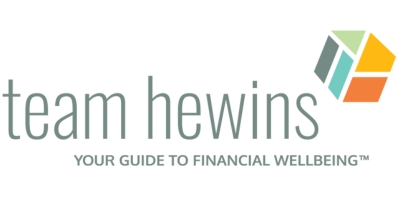Our friend Mohamed El-Erian¹ has been writing, tweeting and appearing on business shows at a record pace lately, for obvious reasons. As our readers know, we have followed him since his days running the PIMCO Emerging Markets Bond Fund in the 1990s. Without accepting all of his predictions and investment recommendations, we get a lot out of his analyses and insights.
This article is quite good, IMHO, but it is likely to be more than many of you care to read. It is worth skimming, and we will share a few of his key points, after a brief market wrap-up.
This was an eventful month (and therefore, quarter)
This past quarter was the worst in quite a while, needless to say. Thank goodness for the sharp recovery at the very end; it could have been even worse.
- The S&P 500 was down almost 20%, while small and international stocks were down more than 20%.²
- Fixed income markets experienced significant liquidity challenges. High yield and emerging markets bonds ended down, and even municipal bonds had a bad week before recovering to record a loss of less than 1%.³ Serious Fed intervention helped a lot.
- The main issue is uncertainty:
- From the health perspective, no one really knows how long this will take, how bad it will be, and where.
- As global economies at least partially shut down in an effort to curb the spread of the virus, it seems we are in uncharted waters. We see millions of people unemployed, but for how long? Will businesses go under? When will we get the recovery started?
Before we shift to the markets, let us again express our hope that all of you stay safe and find ways to keep your spirits up. Tragically, many people are going to be hurt by this, but at least we know it will end at some point–it is not the “New Normal,” a phrase coined by Mr. El-Erian after the great recession. But we have to be prepared for things to get worse before they get better.
A Multidisciplinary Approach to Economics
We are not medical experts, not even doctors, but we are forced to focus on the virus and its impact in order to understand anything about economies and financial markets this year. Thus, we find ourselves talking about treatments and pandemic spread models and fatality rates instead of growth versus value, GDP growth and such topics. The latter are all secondary right now, aren’t they?
“As for the severity and duration of the coming recession, all will depend on the success of the health-policy response, particularly on efforts to identify and contain the spread of the virus, treat the ill, and enhance immunity.”
Mohamed discusses the panic reaction many in the market have had in reaction to this enormous uncertainty, and aside from creating the tremendous volatility we observed in March, it created serious liquidity issues, threatening the functioning of markets. Fed intervention to provide liquidity (e.g., for corporate and muni bonds) helped a lot, but these problems highlighted some structural issues that will need to be addressed when things settle down.
So, what do we do now?
As always, we focus on the things we can control and recognize what we do not know. Right now, the most important thing is to stay safe, and if we can help each other, we should do all we can (e.g., make donations, take food to your elderly neighbor).
Meanwhile, we do not know how this will play out, but we know the market is going to know before we do. We just saw three amazing days last week when the market rallied very sharply, as it often does. As painful as it might be to watch these down days while we worry about life and death issues and uncertainty, we know it will get better and we need to stick with our plans.
Be well,
Roger Hewins
Team Hewins, LLC (“Team Hewins”) is an SEC-registered investment adviser; however, such registration does not imply a certain level of skill or training and no inference to the contrary should be made. The information contained within this letter is for informational purposes only and should not be considered investment advice or a recommendation to buy or sell any types of securities. Past performance is not a guarantee of future returns. It should not be assumed that diversification protects a portfolio from loss or that the diversification in a portfolio will produce profitable results. The opinions stated herein are as of the date of this letter and are subject to change. The information contained within this letter is compiled from sources Team Hewins believes to be reliable, but we cannot guarantee accuracy. We provide this information with the understanding that we are not engaged in rendering legal, accounting, or tax services. We recommend that all investors seek out the services of competent professionals in any of the aforementioned areas. For detailed information about our services and fees, please read our Form ADV Part 2A, which can be found at https://www.advisorinfo.sec.gov or you can call us and request a copy at (650) 620-3040.
¹ If you want to know more about this Chief Economic Adviser at Allianz, here is more background.
² Source: Morningstar, Inc.
³ Source: Morningstar, Inc.


